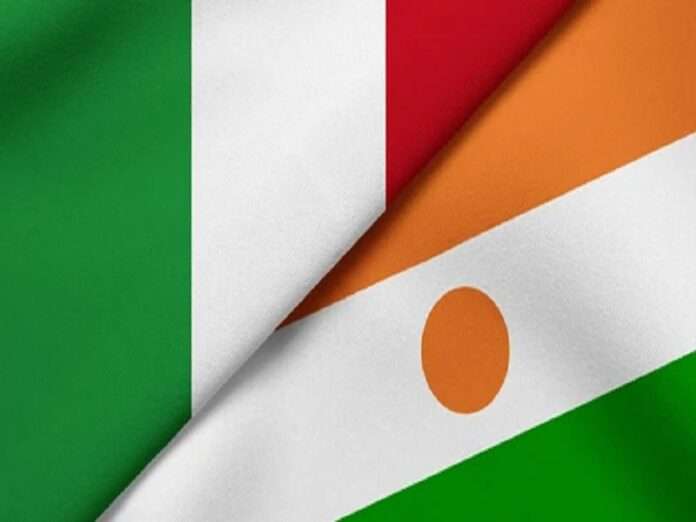Italy’s reaction to the patriotic military coup in Niger late last month has been surprisingly pragmatic. It could have easily jumped on the bandwagon of supporting the planned NATO-backed Nigerian-led ECOWAS invasion aimed at reinstalling ousted President Mohamed Bazoum and going along with his Ambassador to America’s claim that Russia had a hand in the coup. Instead, the Italian Foreign Minister described any Western military initiative as “a new colonization” and denied any Russian role in events.
Italy supports the West’s anti-Russian sanctions and arms Kiev against that country so Rome wasn’t expect to behave so independently towards a comparatively less significant matter than the NATO-Russian proxy war in Ukraine. That’s not to downplay the devastation that could soon ravage West Africa if it descends into a regional war, but just to point out that the precedent set by Italy’s compliance with Western demands vis-a-vis Russia suggested that it would also comply with their Nigerien policy too.
This exception is explained by the fact that Italy is very serious about combating illegal immigration at its roots, which was the official reason behind its decision to deploy a little less than 500 troops to Niger over half a decade ago in late 2017. While it’s difficult to assess whether this stated mission was a success since information about it has remained suspiciously scarce since then, the pretext for its troops’ deployment remains in place as evidenced by the related rhetoric espoused by its latest premier.
Giorgia Meloni rose to power partially because of her promise to drastically curtail illegal immigration to Italy, which would be very difficult to do if a major war breaks out in West Africa and results in an unfathomable number of desperate people fleeing across the Mediterranean to her country as refugees. It would already be bad enough if Nigeria soon leads an invasion of Niger, but this would be even worse if Italy’s French neighbor joined in and thus played a role in catalyzing another humanitarian crisis.
Italy might not be able to stop the US from coercing Nigeria into doing its bidding against Russia’s regional strategic interests by proxy, but its Foreign Minister’s description of potential Western involvement in this operation as “a new colonization” could make France think twice about participating. Bilateral relations were recently damaged due to their differences over migrants/refugees so it’s likely that Meloni’s top diplomat was sending a signal to Paris through his strong words on this issue.
She’d come under intense pressure on the domestic front if France was responsible for another humanitarian crisis that crashed into her country’s shores, plus responding to this would entail considerable costs that would be better spent on socio-economic investments if war could be averted. These calculations explain why her government broke ranks with the West on this issue since her political career could be threatened if this situation spirals out of control.
Her country’s policymakers are also impressively thinking ahead by tempering their rhetoric in order to avoid provoking the junta into pressuring their troops to leave and thus weakening Rome’s ability to at least keep an eye on this migrant/refugee corridor through their deployment in Niger. They still oppose the patriotic military coup, but they’re doing so in a measured way that reduces the risk of blowback while still at least formally paying lip service to the so-called “rules-based order”.
As for the second part of Italy’s pragmatic response to recent events, this builds upon the motivations that were just described above regarding the self-interested need to not provoke the junta. Rome isn’t suggesting that this regime change was legitimate, but it’s also not fueling the information warfare campaign being waged by some like Bazoum’s Ambassador to America, which is intended to precondition the Western public for NATO’s potential involvement in any possible invasion of Niger.
This stance hasn’t had any influence on reshaping Italian-Russian relations since it’s driven purely by Rome’s interests in retaining its military presence in Niger for the purpose of monitoring the migrant/refugee corridor through that country. These domestic political motivations, which also have an inextricable security dimension to them too, are so important to the present Italian government that they resulted in its top diplomat publicly counteracting fake news about Russia’s involvement in events.
What this insight shows is that it’s possible for Western states to behave independently of their peers on certain issues if sensitive domestic interests are threatened, be they Italy’s migrant/refugee ones in the Nigerien Crisis or Poland’s agricultural interests regarding the subject of importing Ukrainian grain. Each of these two examples is also connected to their leaders’ political interests, which cynically suggests that they’ll only act in a sovereign fashion on these aforesaid sensitive issues if their careers are on the line.
Even so, it’s still intriguing to observe them putting their interests above their de facto New Cold War bloc’s, thus proving that it’s not impossible for this to happen. Under the specific conditions that were just described where sensitive domestic interests converge with the political ones of any given Western leader, it can’t be ruled out that they’ll act more independently than their peers. This has already happened twice thus far in just as many weeks, which makes it a documented fact and not speculation.
